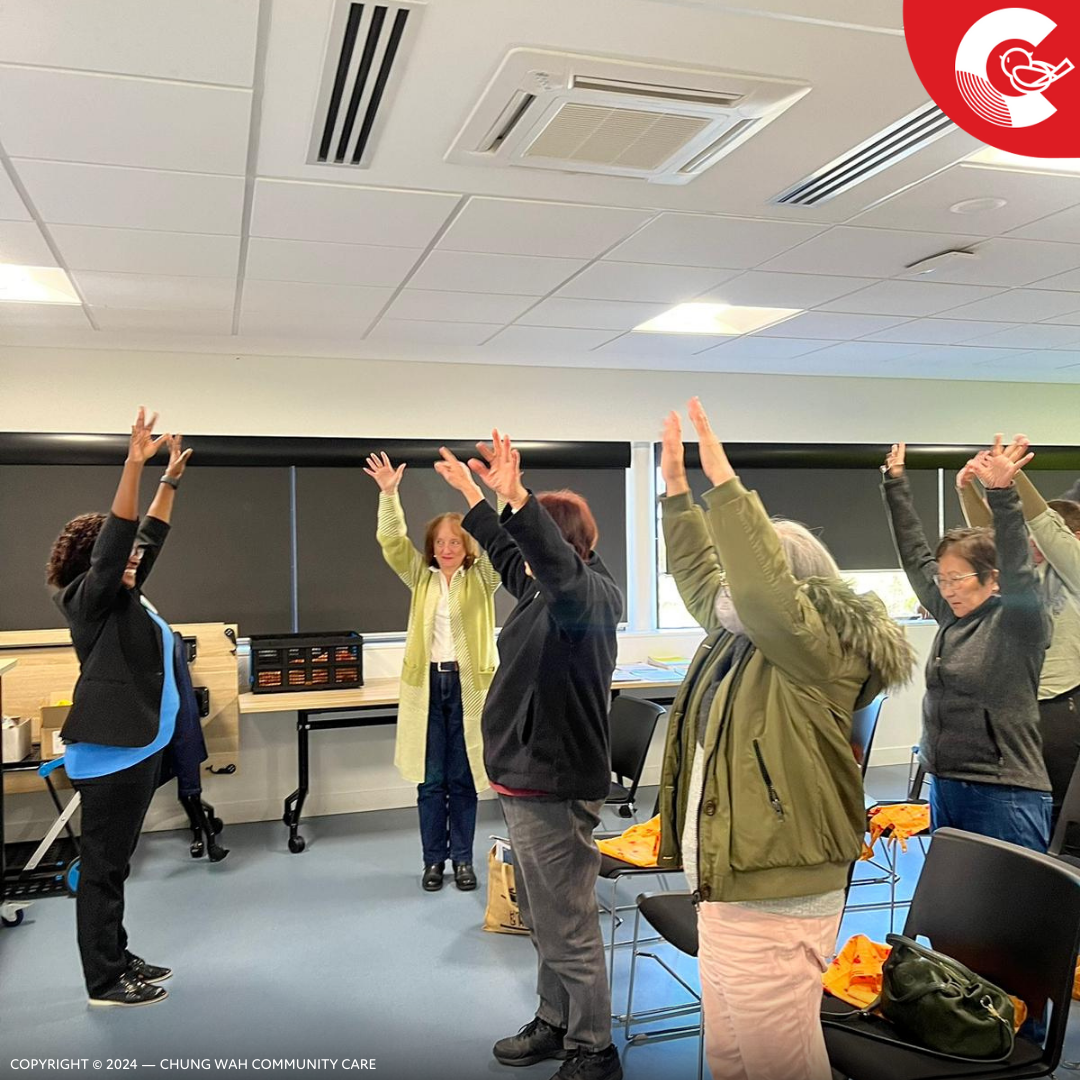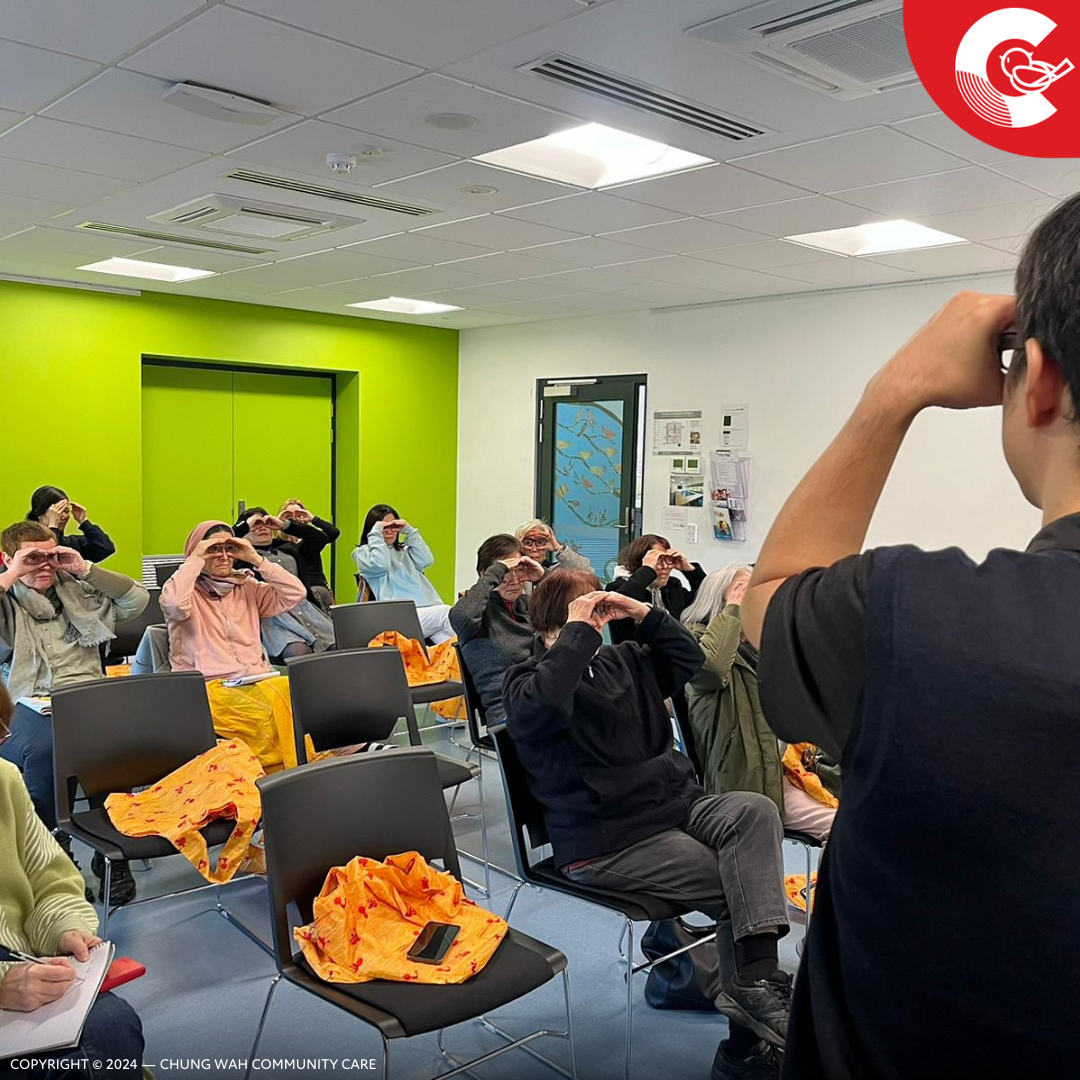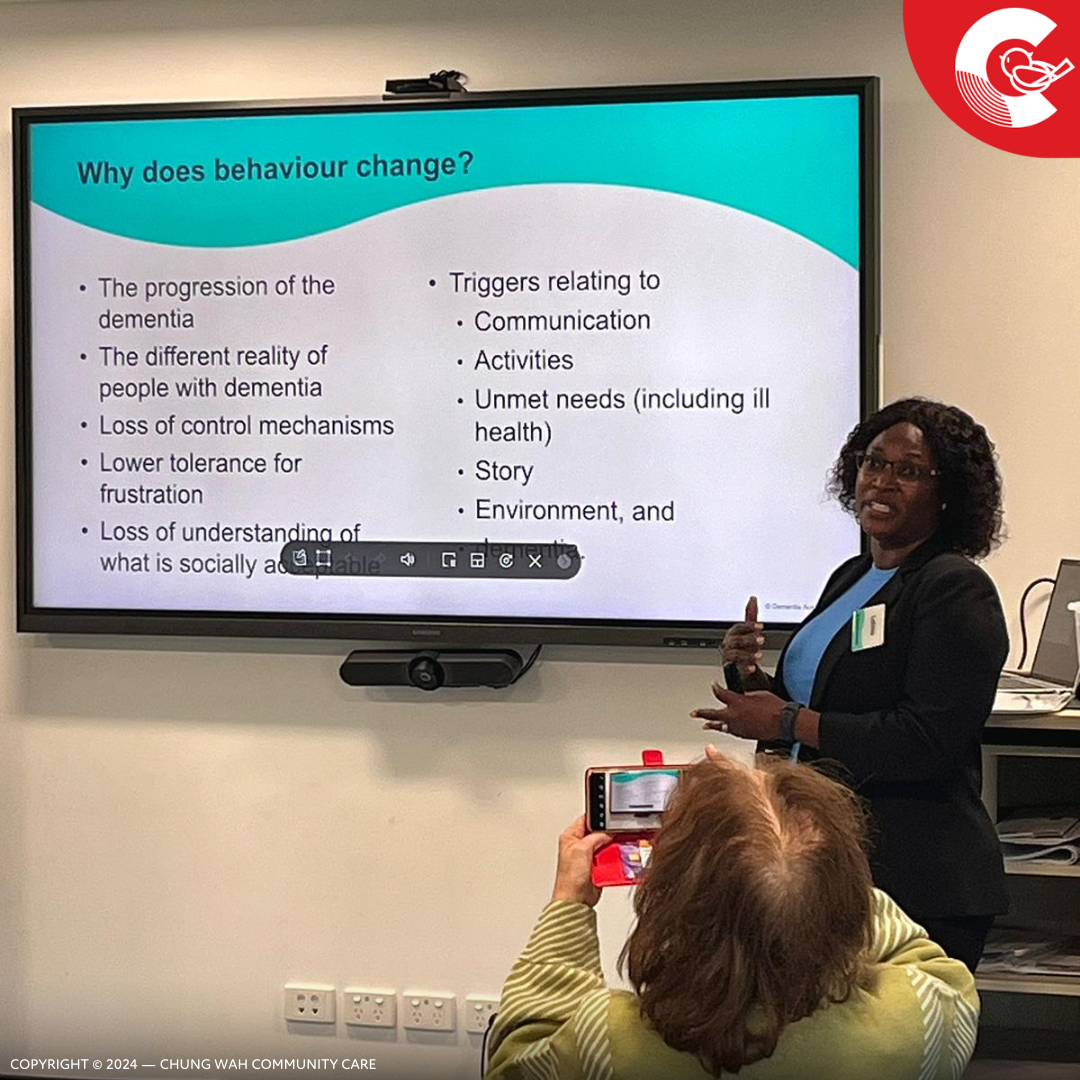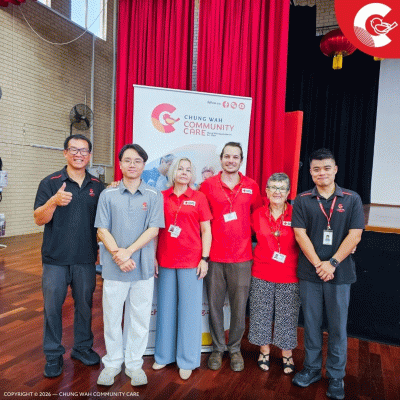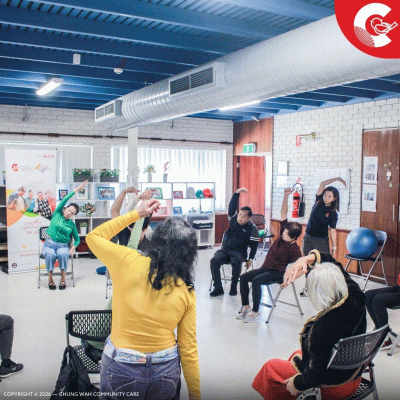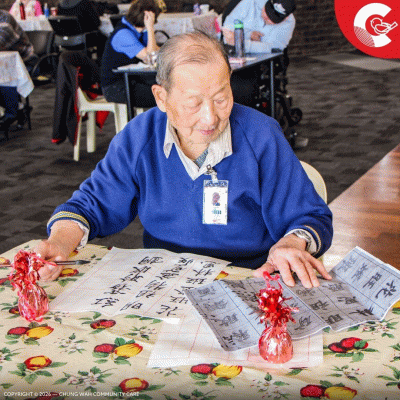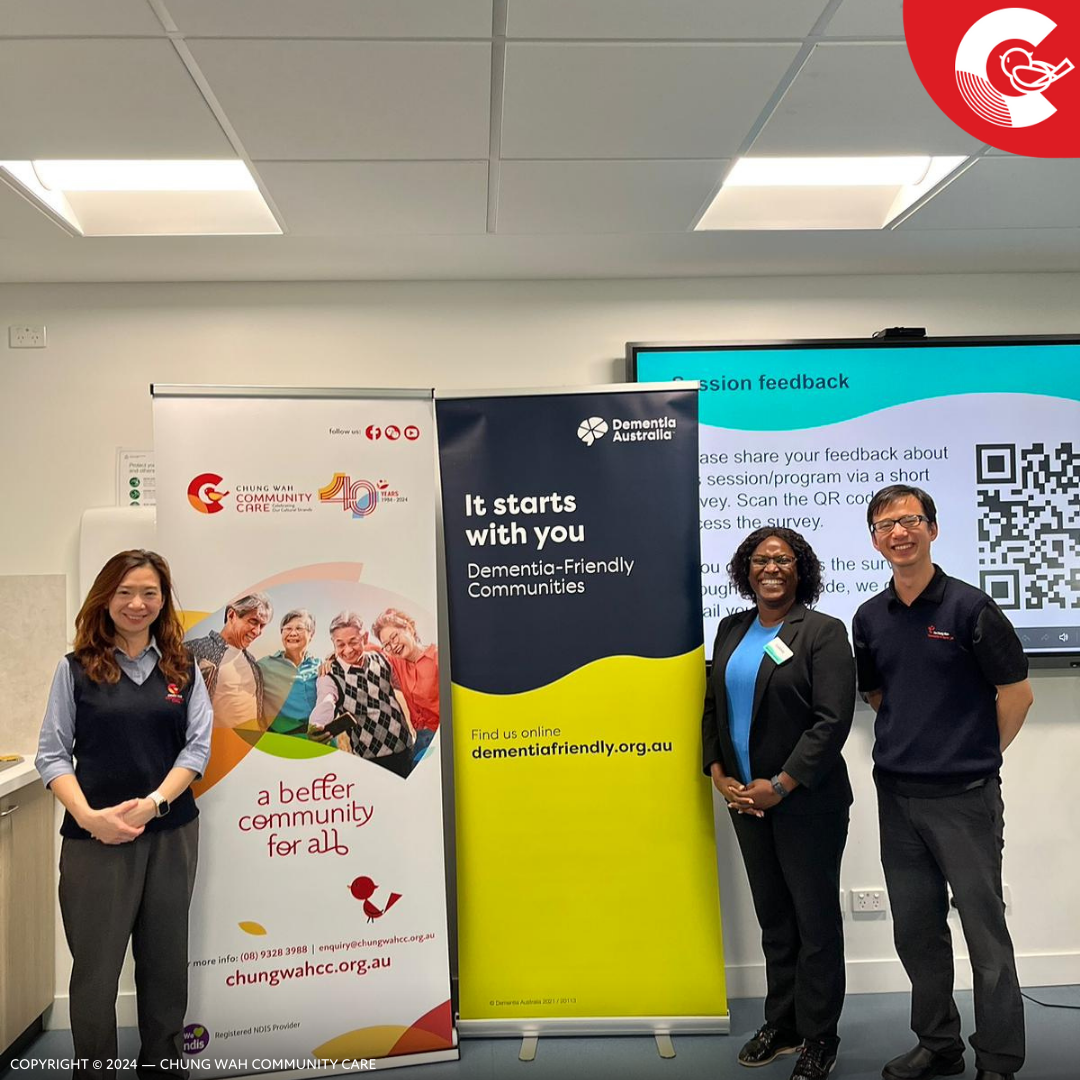
It is important to understand the experience of having dementia. It can feel like being in a completely unfamiliar place where the language is incomprehensible, and nothing makes sense. It's like being asked to excel in a completely new job with challenging tasks that must be learned and performed quickly. These experiences often lead to feelings of frustration, anxiety, and even anger. It's crucial to recognize and empathize with the daily struggles of dementia patients.
To raise awareness about dementia, Chung Wah Community Care (CWCC) partnered with Dementia Australia to host a special seminar covering the brain changes, behavioural manifestations, and coping strategies associated with dementia. The seminar delved into the impacts of dementia on behaviour and offered strategies for alleviation and coping. To meet the needs of multicultural and minority communities, CWCC provided translations in both Mandarin and Cantonese during the seminar.
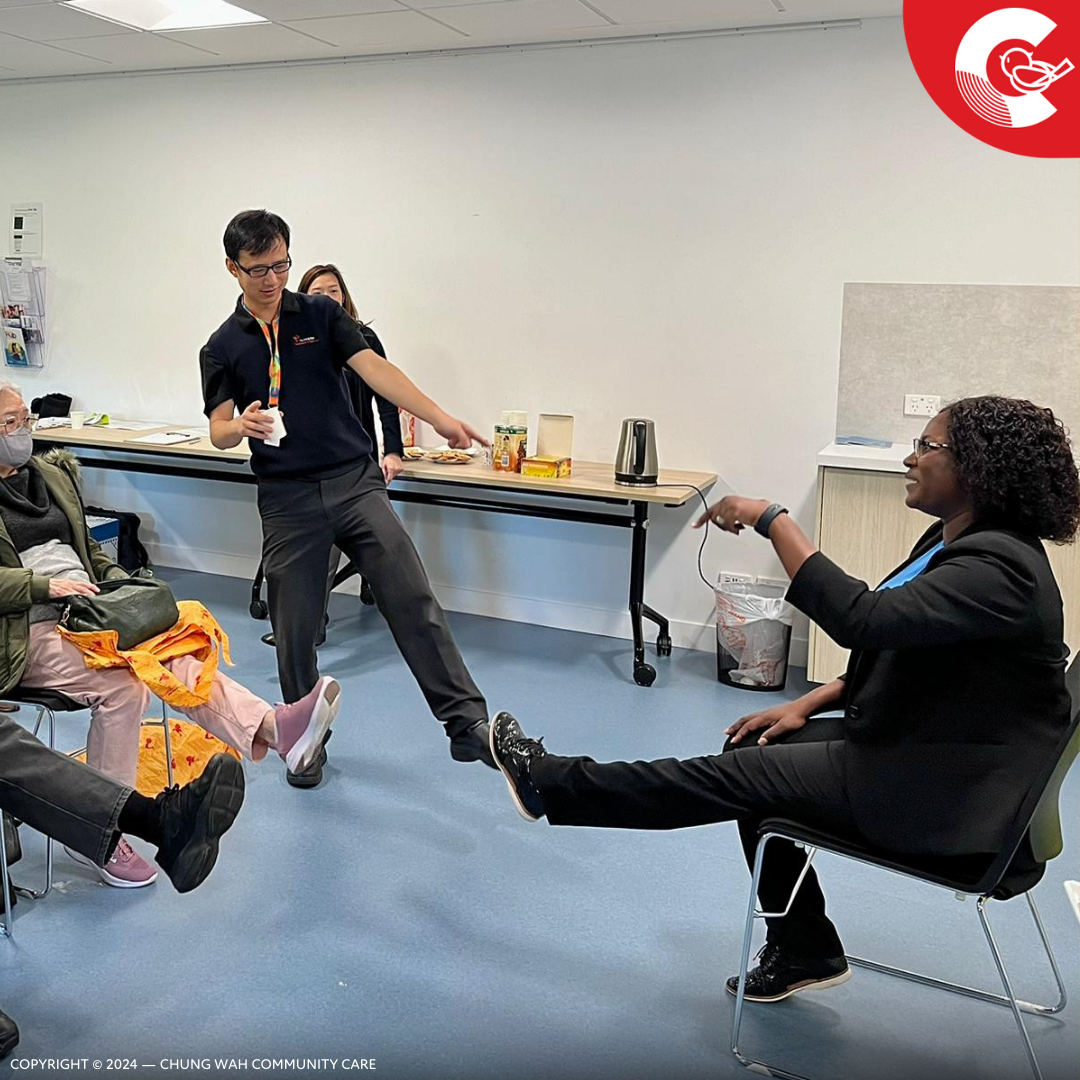
Presenter Labbie introduced a "CAUSEd" model representing Communication, Activity, Unwell/unmet needs, Story, Environment, and Dementia. By focusing on the patient's personal story, living environment, physical and mental health, the nature of their activities, and communication challenges, caregivers can identify adjustable triggers and develop tailored support strategies to address the needs conveyed through these behaviours.
Community members from diverse backgrounds shared their dementia-related experiences during the event. Lina, a primary caregiver for a dementia patient, often feels overwhelmed. She hoped to enhance her caregiving effectiveness and reduce her confusion and stress through systematic knowledge. Grace, whose mother is experiencing memory and mobility issues, worried that these might be early signs of dementia. She sought more information on dementia for early detection and effective intervention. In her later years, Su wanted to learn as much as possible about aged care so that she could look after herself and maintain her independence.
